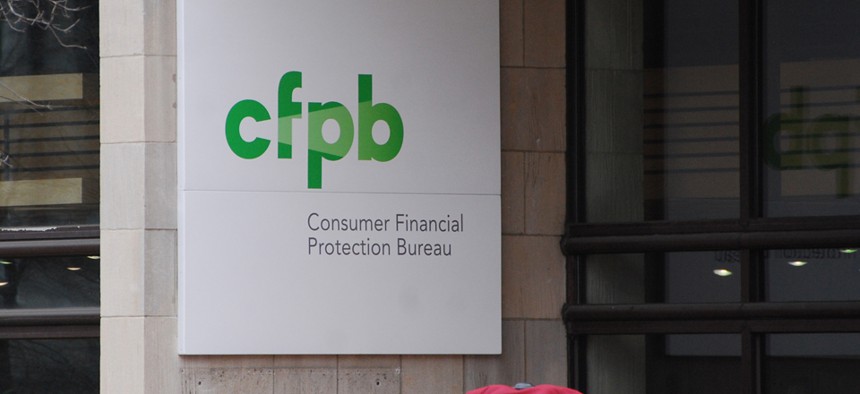
Flickr user afagen
Agency Returned $4.6 Billion to Wronged Consumers
Republican critics of the 3-year-old Consumer Financial Protection Bureau say it hasn’t received enough oversight.
Marking its third anniversary on Monday, the Consumer Financial Protection Bureau -- still the newest federal agency -- trumpeted its record in standing up for the economic interests of ordinary Americans.
Its accomplishments range from $4.6 billion in restitution to wronged consumers, new rules aimed at reinforcing recovery from the 2008 financial meltdown and an ongoing campaign to play ombudsman and educator for average Americans in money matters.
In a blog post, Assistant Director of the Office of Community Affairs Chris Vaeth stressed the bureau’s mission to “restore trust in the consumer financial marketplace” while making sure consumers are treated fairly while applying for a mortgage, borrowing for college or choosing a credit card.
Since opening in July 2011, the bureau has logged more than 400,000 complaints in multiple languages about credit cards, mortgages, bank services, student loans, credit reporting, debt collection, payday loans, vehicle and other consumer loans and prepaid cards, he noted.
CFPB’s list of completed projects includes:
- Know Before You Owe, a campaign to make costs and risks of products clearer;
- Student loan resources for students, families, and high school and college staff;
- Mortgage resources for homeowners, homebuyers, and housing counselors;
- Money management guides for caregivers of older Americans;
- Consumer protection resources for military service members; and
- A variety of financial education guides.
“With our full set of tools, we’re looking to create a marketplace where costs and risks are clear, and no consumer is harmed by unfair, deceptive, or abusive acts or practices,” Vaeth wrote.
A starkly different view of the bureau continues among Republicans in Congress, who voice their objections to what they view as an absence of oversight opportunities for Congress due to the CFPB’s funding that comes not through an appropriation but through the Federal Reserve.
The majority on the House Financial Services Committee on Monday marked the occasion of the fourth anniversary of President Obama signing the bureau’s enabling legislation, the larger Dodd-Frank Financial Reform Act, by releasing a scathing critique, saying the law hadn’t solved the “too big to fail” problem.







